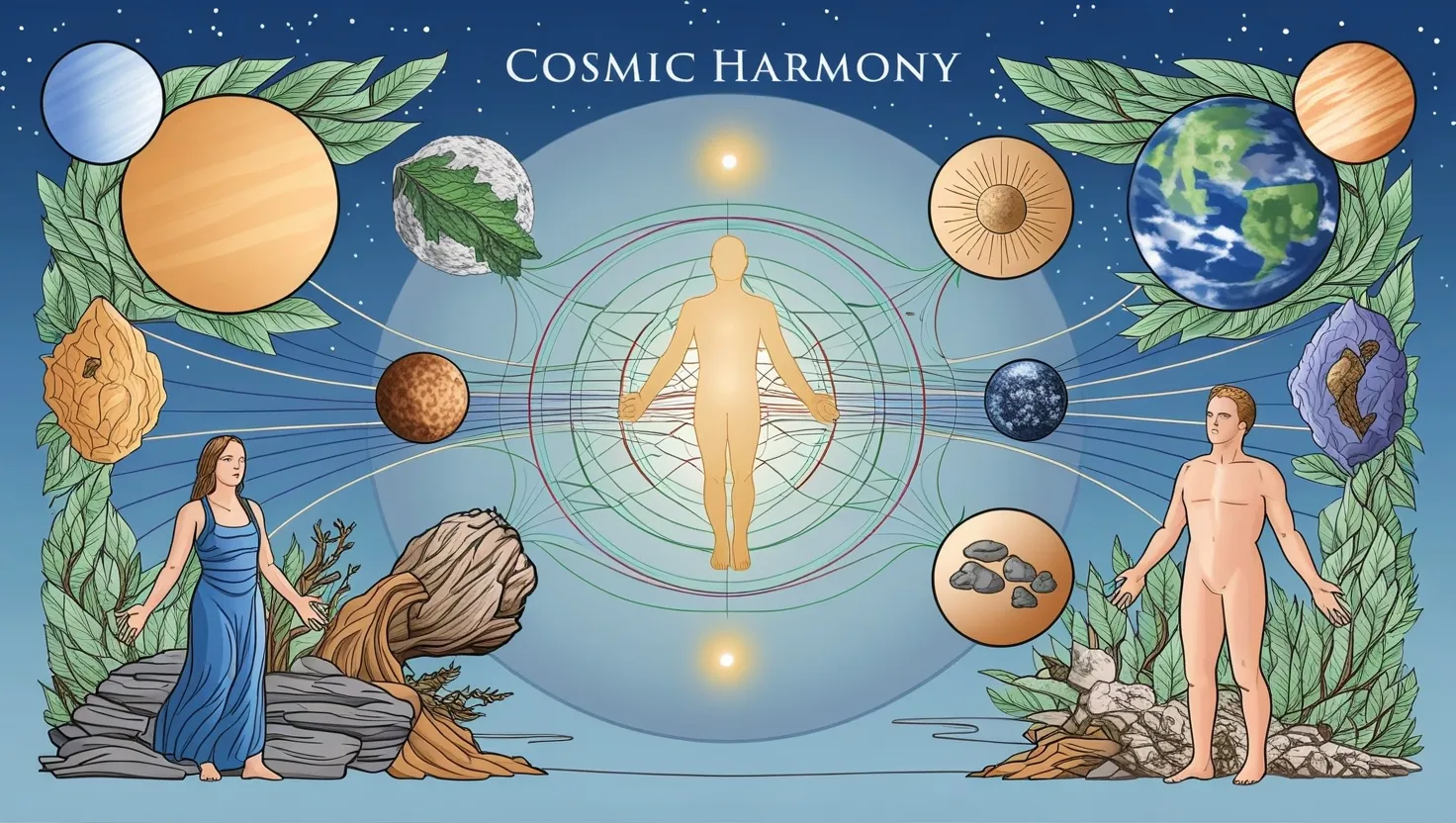Imagine stepping into a world where every tree, river, and animal is seen as a sacred entity. It’s a world rooted in the ancient texts of Hinduism, specifically the Vedas, Upanishads, and myriad other scriptures. These texts aren’t just old pages but a treasure trove of environmental wisdom, teaching us how to co-exist harmoniously with the natural world.
The Vedas, among the oldest and most revered sacred texts from India, talk about Mother Earth with the same tenderness we show to our own mothers. In the Rigveda and Atharvaveda, Earth is depicted as nurturing and protective, while humans are her children. This metaphor fosters a sense of responsibility in people to protect and cherish the environment. It’s like knowing that every step you take has a ripple effect on the wellness of our planet.
A big theme woven into Vedic philosophy is “dharma,” which is all about ethical behavior and duty. When it comes to environmental responsibility, dharma emphasizes the moral duty to protect and enhance our surroundings. The Yajurveda cleverly states, “The Earth is upheld by righteousness (Dharma),” reinforcing the idea that ethical conduct is pivotal in keeping our ecosystem balanced.
The ancient folks were pretty savvy when it came to conserving natural resources. They understood the precious value of water, developing smart techniques for its conservation way before modern science caught up. The Yajurveda underscores the importance of keeping water available and sustainable, highlighting how forward-thinking they were about environmental stewardship.
There’s an evident reverence for nature in Vedic society. They placed a high intrinsic value on all life forms, whether trees, plants, or animals. The mythology surrounding natural wonders like the Himalayas and the Ganges River shows their ecological significance. The concept of “Rita,” which means natural order, plays a key role in Indian cosmology, pointing to an intertwined balance within the cosmos.
Ayurveda, another gem from Vedic philosophy, ties in closely with environmental health. It advocates for living practices that align with nature to ensure both personal and environmental well-being. By following Ayurvedic principles, people can minimize the impact of environmental toxins, proving that a healthy environment equates to healthy living.
Rituals in Vedic culture often included environmentally friendly practices. Tree planting, safeguarding water bodies, and respecting animal life were key elements. These rituals aren’t just old traditions; they can actually inspire today’s environmental safeguards. Ancient wisdom still has a lot to teach us about tackling modern ecological issues.
The environmental principles found in the Vedas aren’t just ancient history—they’re incredibly relevant today. Their focus on sustainability and environmental respect fits seamlessly with current environmental movements. Blending Vedic wisdom with modern science could lead to practices that are both innovative and planet-friendly.
Hindu scriptures set forth ethical guidelines that shape how people interact with the environment. Concepts like the four Purusarthas (dharma, artha, kama, and moksha) and Ahimsa (non-violence) urge individuals to live in ways that respect and preserve the natural world. They offer a moral compass for addressing environmental challenges, making these old teachings all the more valuable in our times.
People in ancient India were essentially practicing ecologists. They lived in a state of awe and respect for the natural world, a mindset that’s desperately needed today as we grapple with climate change and ecological degradation. Their teachings can help bridge the widening gap between modern society and the natural world, pushing us toward a more sustainable future.
The Vedic seers’ approach was holistic and comprehensive. They believed that the universe is an integrated whole, with all natural phenomena interconnected. This view promotes a blend of spiritual and physical symbiosis, urging ethical and moral responsibilities towards the environment. Combining these ancient principles with contemporary knowledge can pave the way for a greener future.
Vedic texts are packed with practical wisdom for modern environmental challenges. Their emphasis on the five elements—earth, water, air, light, and cosmos—serves as a reminder of the importance of these essential components in our ecosystem. Practices like performing Yajnas (sacrificial rituals) and implementing environmental rules show the proactive measures taken by ancient Indians for conservation.
Indian society has long been grounded in Vedic traditions, which emphasize living in harmony with natural surroundings. This cultural co-existence with nature offers a valuable model for modern societies, often plagued by environmental neglect. By revisiting these ancient values, contemporary societies can discover new solutions to today’s environmental crises.
The wisdom from Vedic manuscripts can be applied across various modern scenarios. The principles of intrinsic value and interconnectedness guide policies on biodiversity conservation. The focus on sustainability and respect can influence agriculture, forestry, and water management practices. By adopting these ancient principles, we can shape policies that are both environmentally conscious and sustainable.
Ultimately, Vedic texts weave a rich narrative of environmental ethics and conservation practices that stand the test of time. By embracing these timeless principles, we can nurture a deeper respect for our planet and work towards a more sustainable future. The lessons of the Vedas remind us that our actions have consequences, and living in harmony with the environment isn’t just a moral duty but absolutely vital for the planet’s well-being.
This ancient wisdom, though centuries old, can light the way for future generations. So, the next time you’re outside, just think about how these age-old teachings encourage you to see the world around you as more than just a backdrop for human activity, but as a living, breathing entity that deserves just as much care and respect as we give to ourselves.






